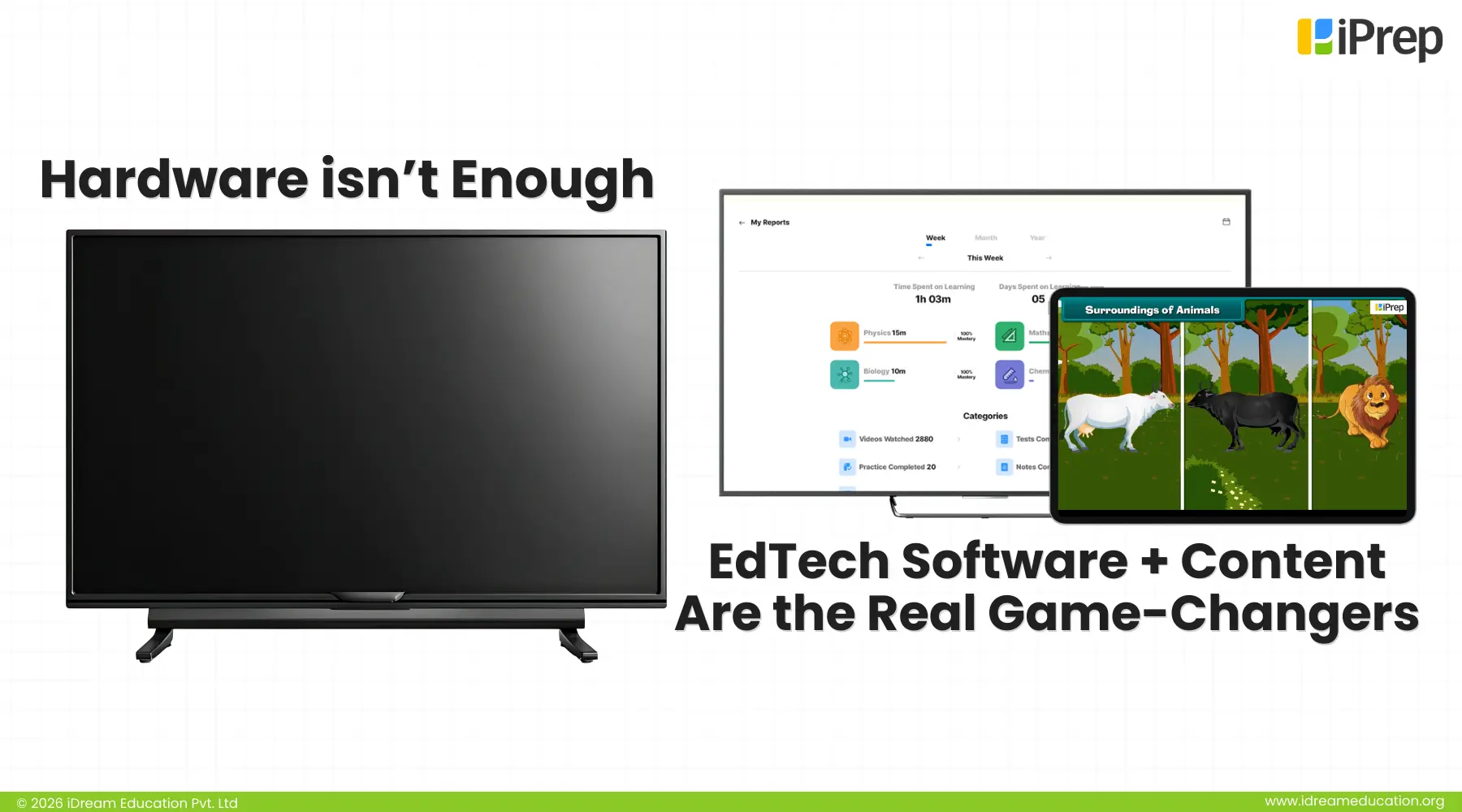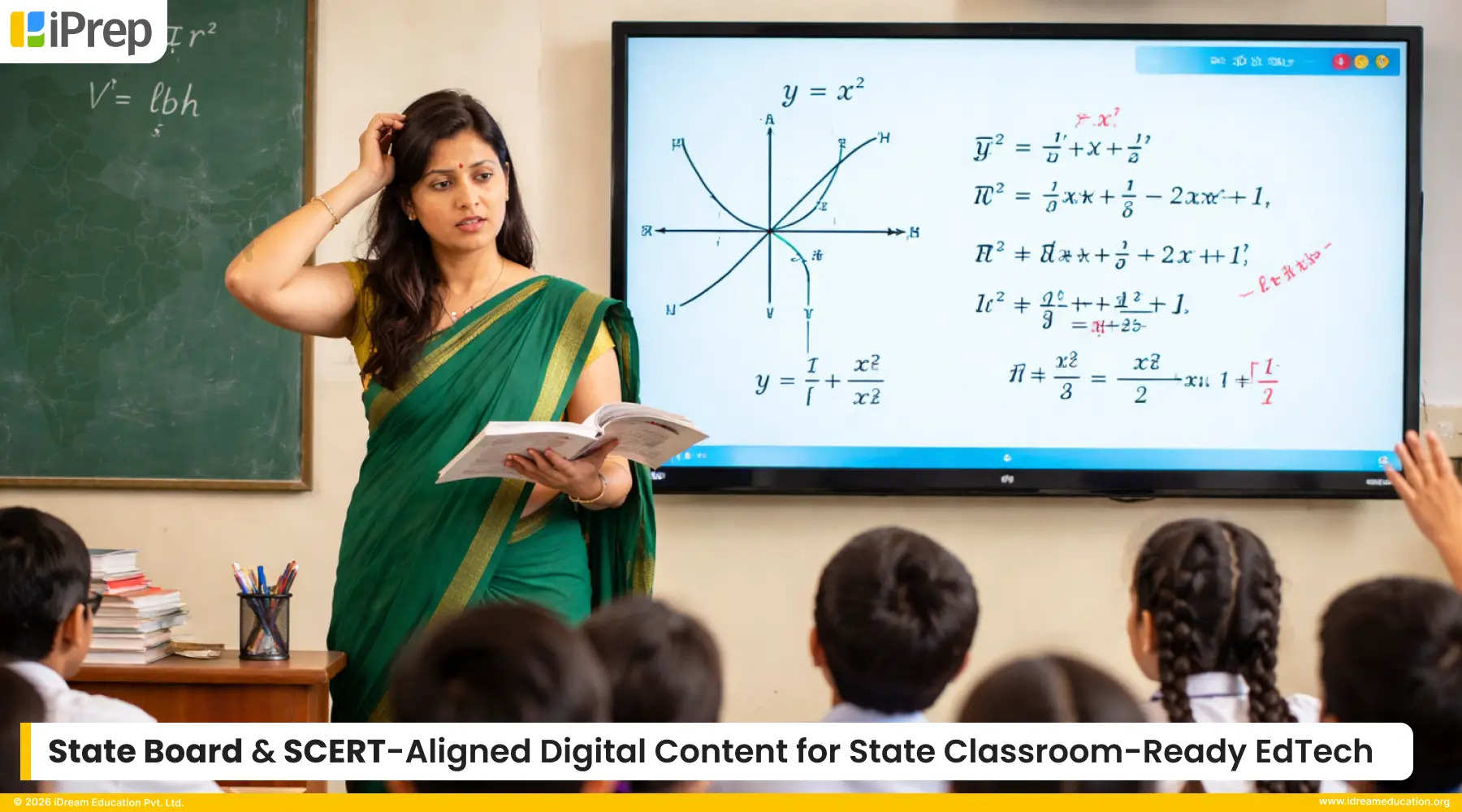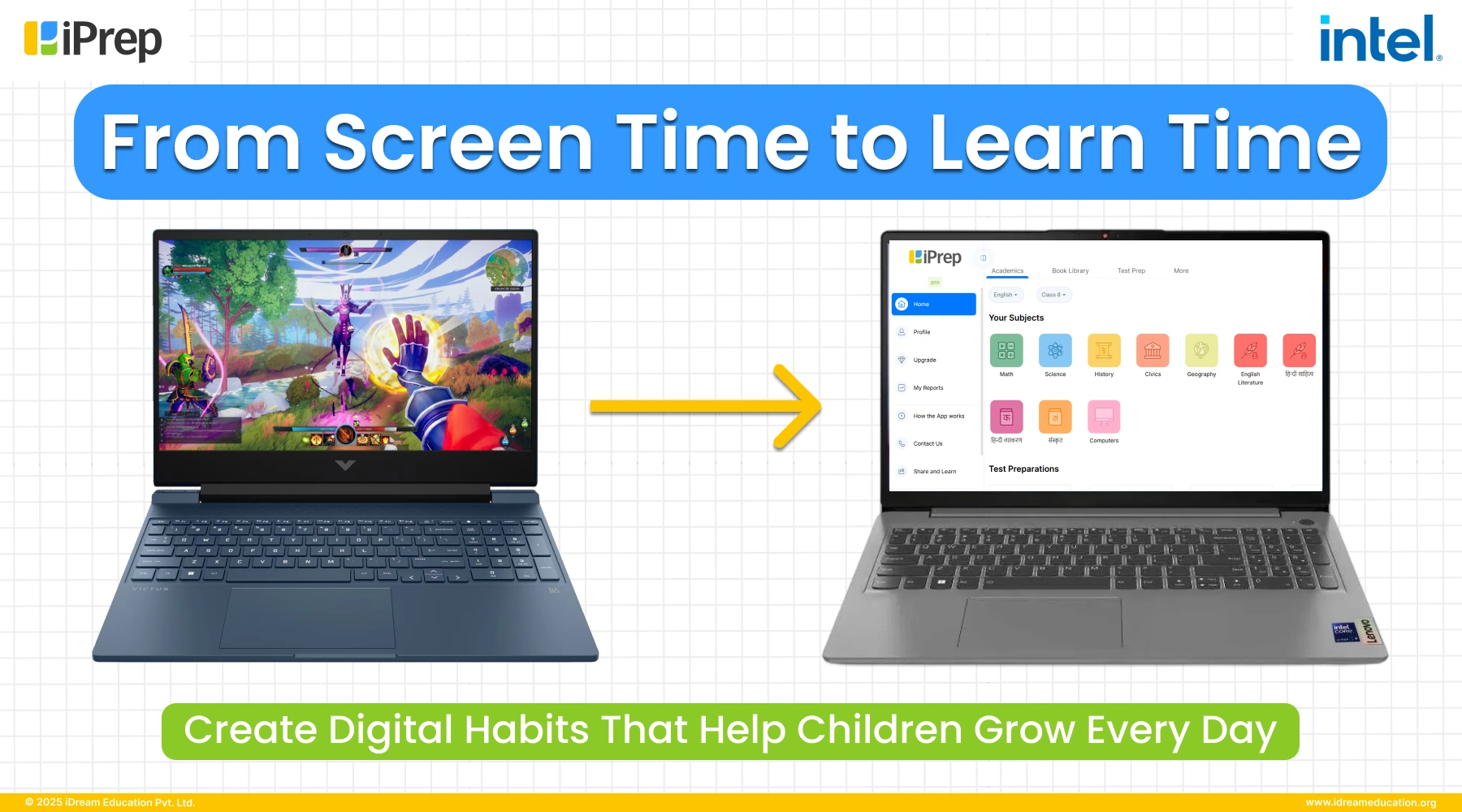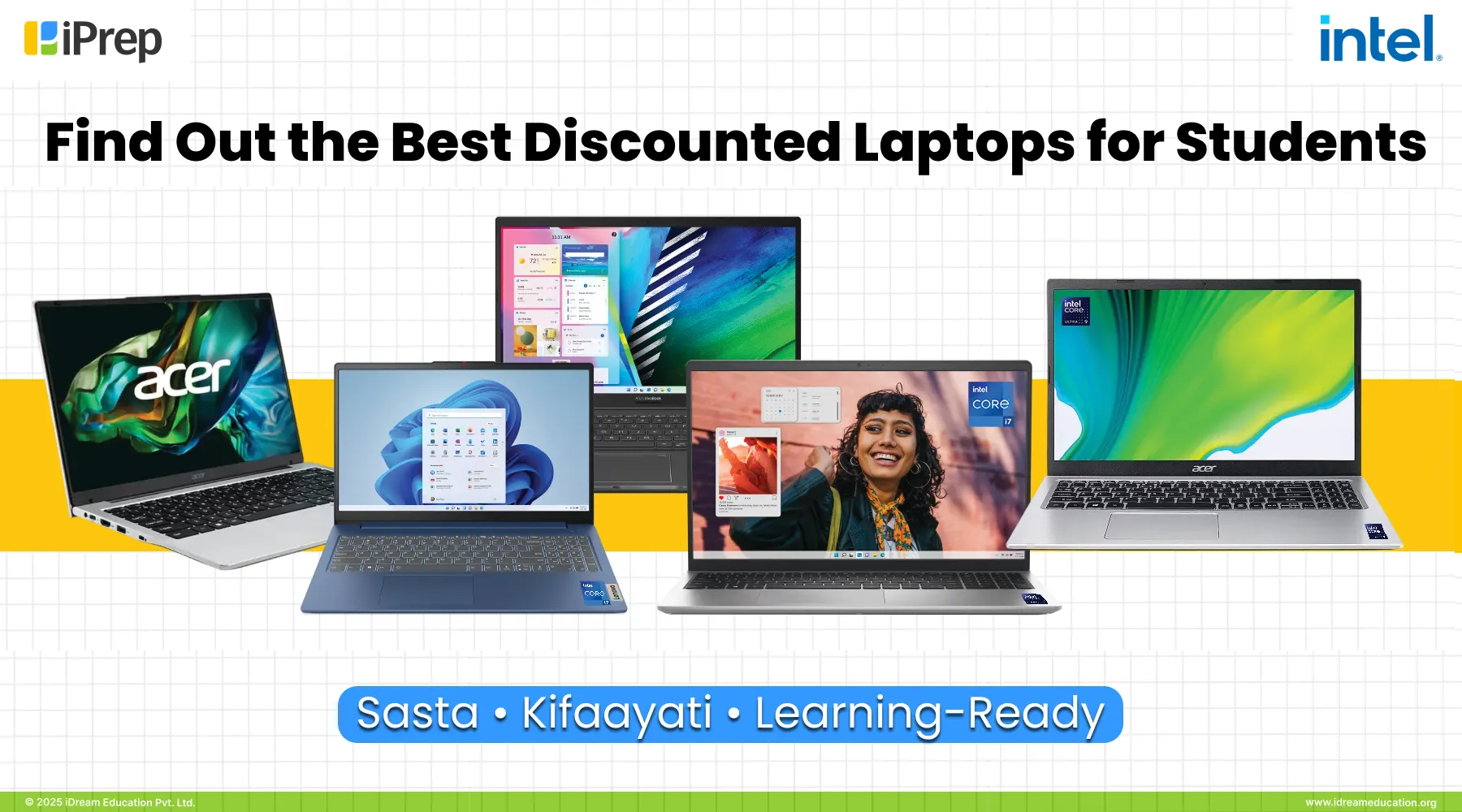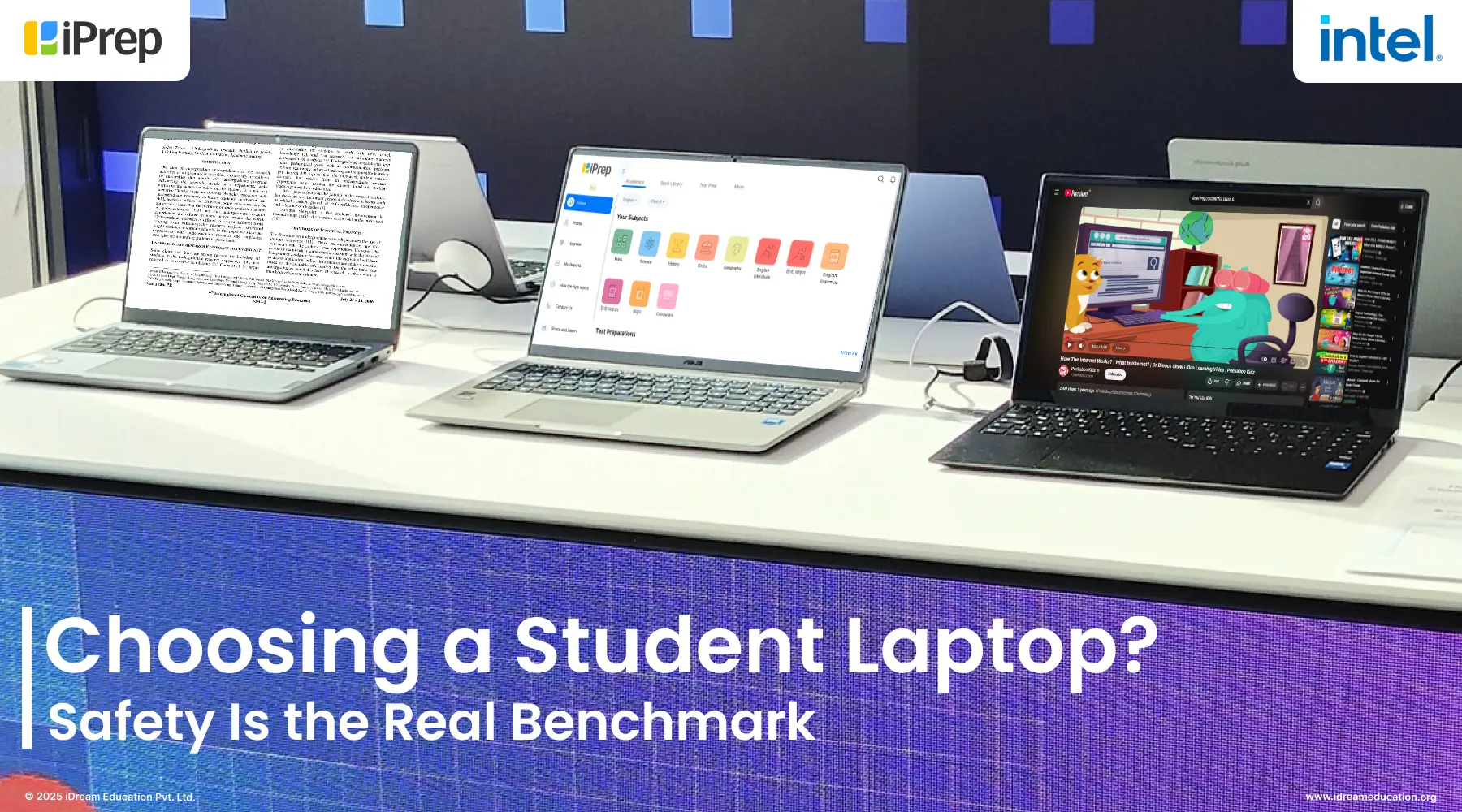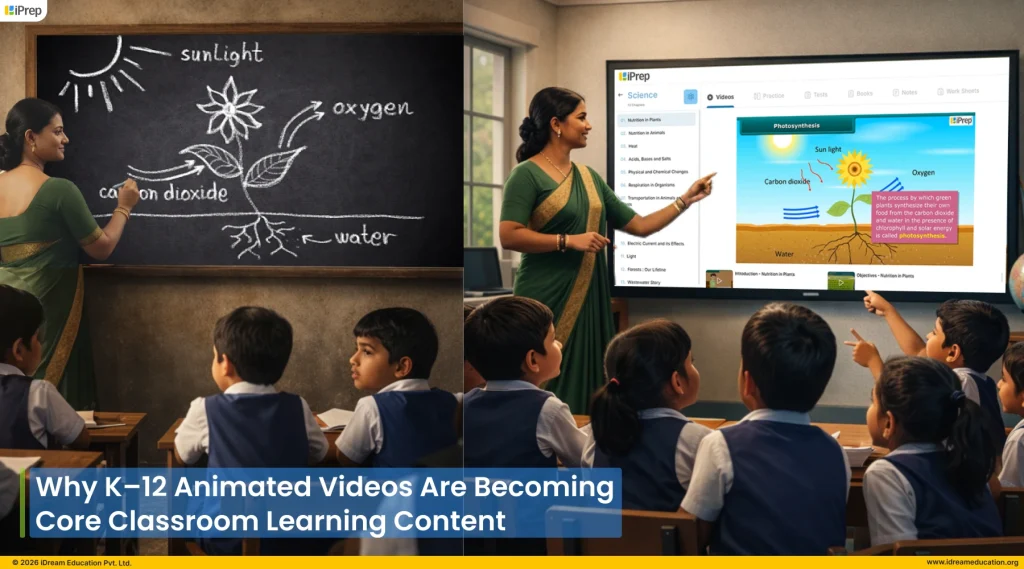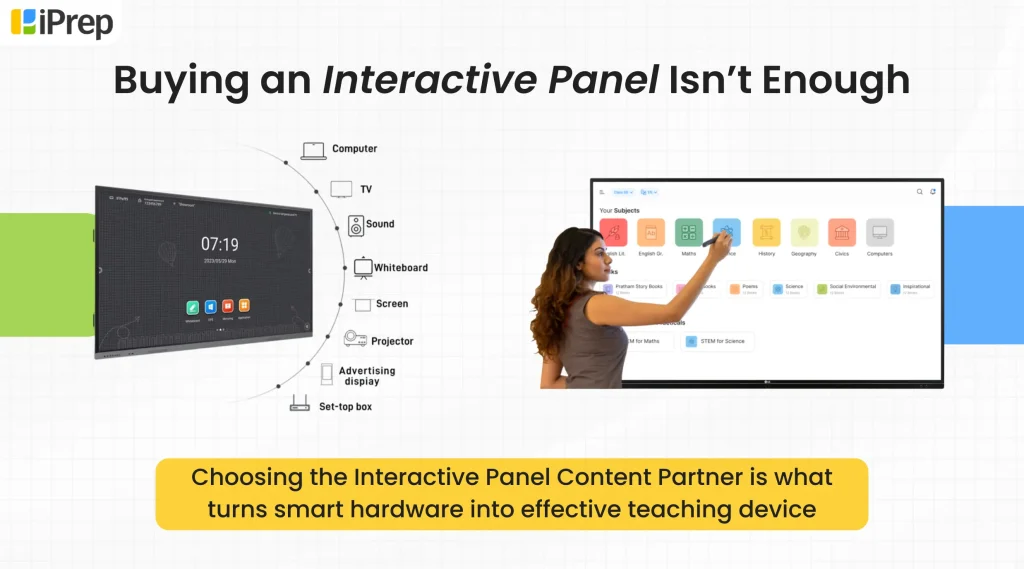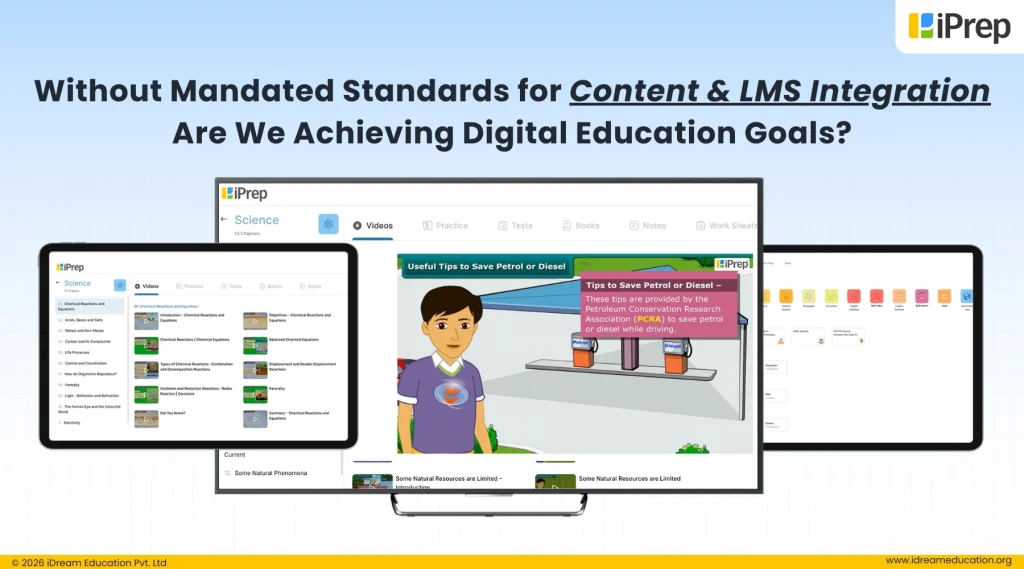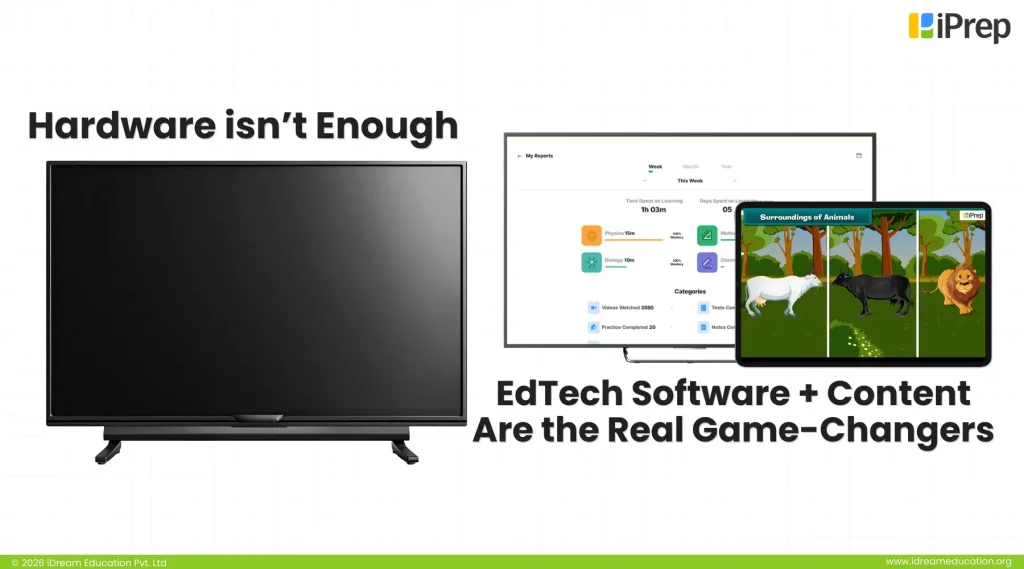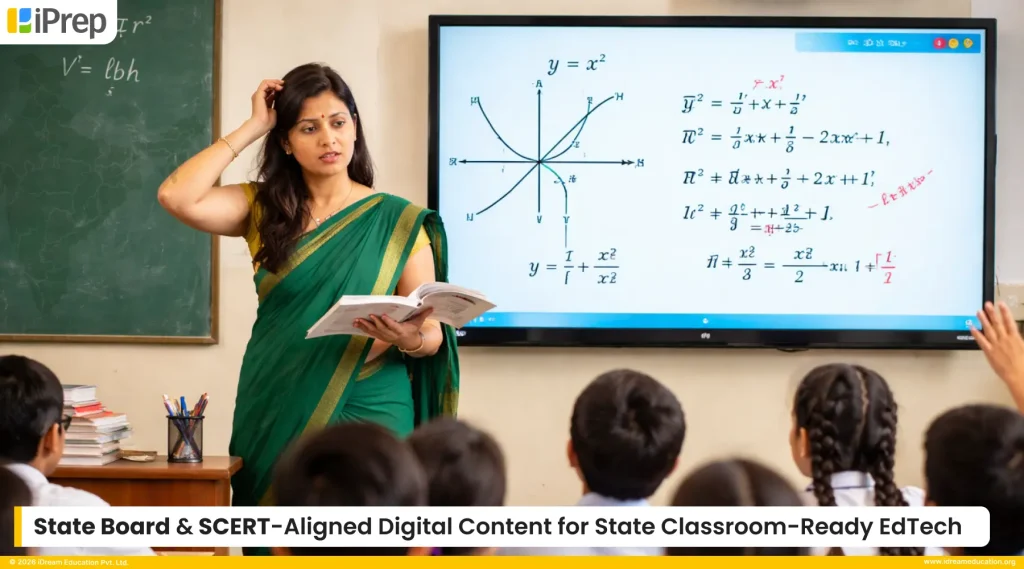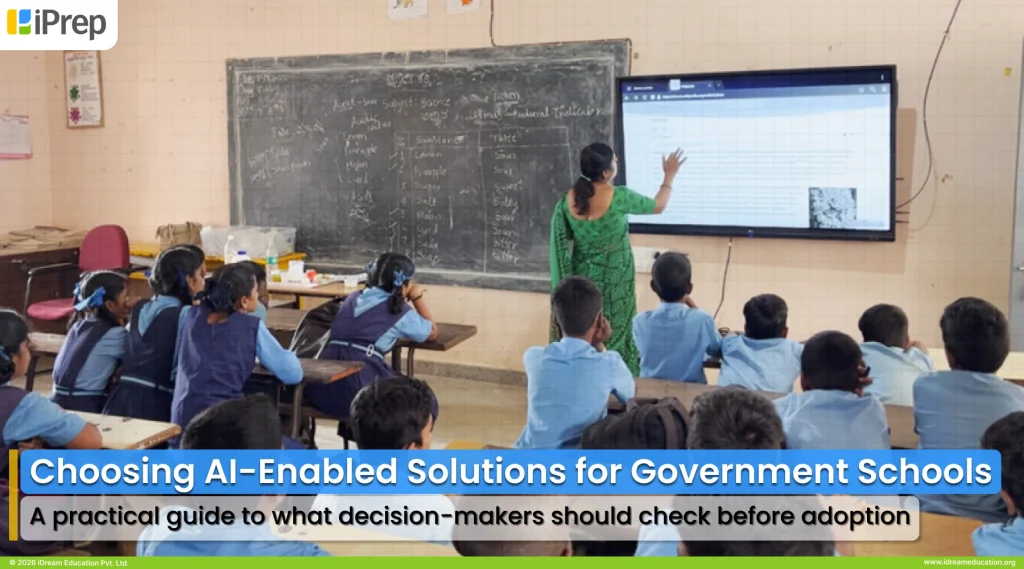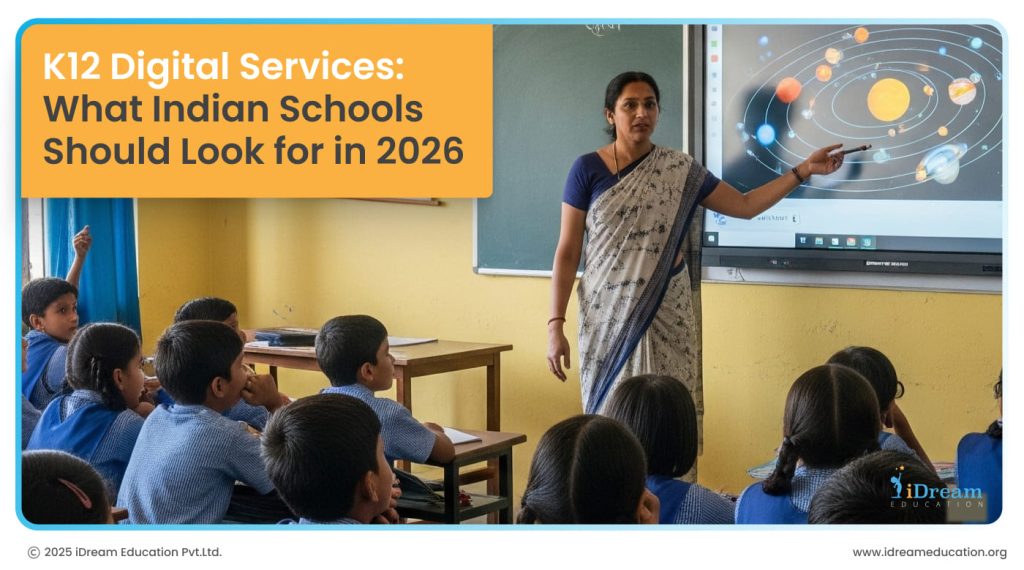
India’s K-12 education sector is experiencing unprecedented growth. Valued at $91.97 billion in 2024 and projected to reach $256.03 billion by 2033 with a CAGR of 12.05%, the market is expanding rapidly.
Accompanied by the NEP 2020’s focus on holistic and competency-based education, this growth is pushing schools to re-examine not only what they teach, but also how they deliver learning.
By 2026, choosing the right K12 digital services in India will no longer be about adopting piecemeal K12 digital learning tools. It will mean partnering with providers who can offer end-to-end ecosystems—solutions that blend pedagogy, inclusivity, accessibility, and measurable outcomes.
This article serves as a comprehensive guide to the essential features Indian schools must prioritise when evaluating K12 digital services for the future.
Essential Features Schools Must Demand from a K12 Digital Service in India
Choosing the right K12 service in India requires schools to look beyond flashy tools and focus on what truly drives learning outcomes.
Based on policy shifts, on-ground challenges, and the evolving digital landscape, the following are the most critical features that schools should prioritise while considering providers for 2026 and beyond:
Curriculum Alignment and Bilingual Access
The foremost criterion for a K12 service in India is strong curriculum alignment across CBSE, ICSE, IB, and 30+ state boards. By 2026, digital learning services must stay updated with evolving syllabi while delivering bilingual and multilingual learning content in order to ensure inclusivity and equitable access in diverse classrooms.
Schools should look for:
- NCERT and state board mapping with timely updates
- Bilingual and multilingual content for inclusivity
- Structured coverage for progressive learning outcomes
With iPrep, a K12 learning app, iDream Education ensures NCERT and state board alignment across classes 1–12, while offering bilingual and regional language content to bring inclusivity into classrooms across diverse geographies.
Personalised Adaptive Learning (PAL)
Every learner is unique, and adaptive pathways are the future. By 2026, AI-powered PAL will become a cornerstone of K12 digital services in India, empowering students to progress at their own pace.
Features schools must demand:
- Baseline competency identification
- Adaptive pathways based on students’ progress
- Real-time remediation and feedback
- Data-driven insights for teachers and parents
The impact of PAL has already been evident. In Haryana Government Schools, where iPrep PAL was rolled out for Class 11–12 students, an average of 44% learning improvement was seen across Business Studies, Economics, and Geography. This shows how PAL not only personalises education but also drives measurable impact at scale.
Offline-First and Device-Agnostic Access
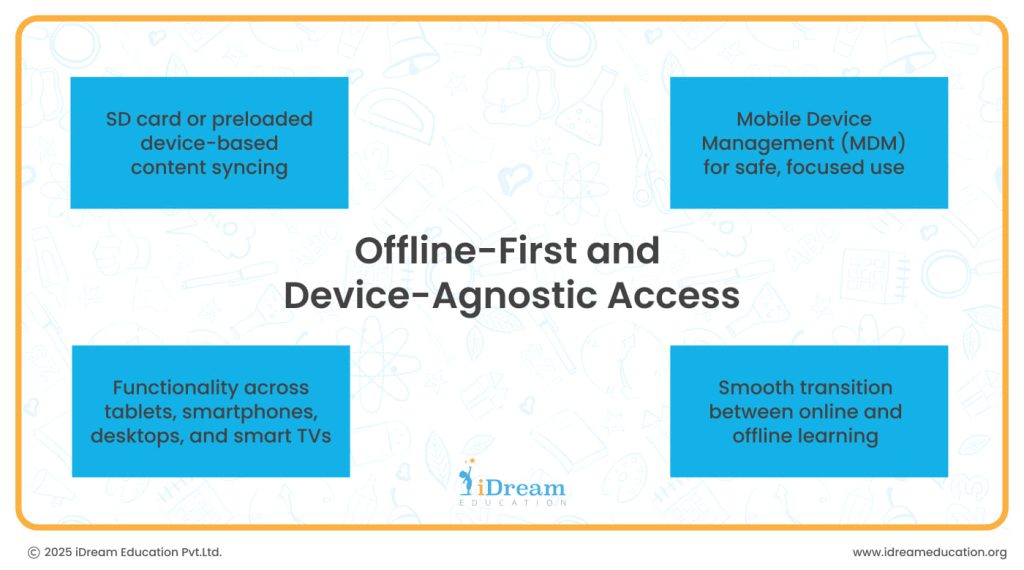
While internet access is improving, UDISE+ (2023–24) reports that 47% of schools still lack reliable internet connectivity. By 2026, offline-first solutions will remain critical. Future-ready digital services in India have to be device-agnostic and low-resource capable.
What schools should expect:
- SD card or preloaded device-based content syncing
- Functionality across tablets, smartphones, desktops, and smart TVs
- Mobile Device Management (MDM) for safe, focused use
- Smooth transition between online and offline learning
iPrep K!2 Tablets come preloaded with bilingual content, enabling both group and self-paced learning. It ensures tablet-based learning without internet dependency, ensuring last-mile access even in rural and remote classrooms.
Comprehensive Teacher Training and Support
Teachers are at the core of digital education adoption, making digital literacy vital for them. Unfamiliarity or resistance to technology can slow the impact. Every K12 service must offer not just tools, but also training and confidence-building for teachers.
Best practices are as follows:
- Context-specific onboarding modules
- Ongoing technical support and helplines
- Ready-to-use lesson plans and teaching aids
- Peer-learning communities and workshops
iDream Education, with its customised teacher training model, teaching-learning material and refresher sessions, enables teachers to confidently deliver engaging, digitally powered lessons through iPrep.
Unified Platforms for Anytime-Anywhere Learning
Fragmented solutions increase complexity for schools. Hence, they must look for unified platforms that integrate group learning, adaptive pathways, self-paced exploration, and real-time reporting within a single ecosystem.
Partner with a K-12 service that integrates:
- Smart classroom tools for collective learning
- Digital libraries for self-paced exploration
- Adaptive pathways for individual progress
- Dashboards for teachers, parents, and administrators
- Analytics for CSR leaders and policymakers
iDream Education, with iPrep, a K12 learning app, provides a unified K12 learning platform, removing the need for multiple vendors. It empowers schools, the best NGO education programmes in India, and the best CSR initiatives in India,to ensure seamless learning—whether in classrooms, at home, or in community spaces.
Engaging and Interactive Content
Student retention improves significantly with interactive content. Research indicates that 95% of teachers saw higher concept retention and 62% reported improved grades when interactive learning was introduced.
Future-ready services must offer:
- Curriculum-aligned animated videos across subjects
- Gamified practice modules and interactive quizzes
- Bilingual audio-visual explanations of abstract topics
- Encourage inquiry and project-based learning
The digital library by iDream, the iPrep Digital Library, with its 9500+ animated video lessons, 18000 titles for reading, gamified quizzes, and real-life examples, allows students to enjoy the process of learning while improving retention and outcomes.
Data-Driven Insights and Accountability
Education stakeholders today demand evidence. The best digital services in India must provide analytics that go beyond reporting attendance to measuring real learning progress.
Key capabilities must include:
- Real-time dashboards for teachers and administrators
- Student- and class-wise performance analysis
- Baseline vs. endline test comparisons
- Data export for research and CSR accountability
These findings help schools intervene early, ensure accountability, and deliver measurable outcomes for the students as well as funders.
Cost-Effectiveness and Scalability
Affordability remains crucial for India’s government. Even CSR Initiatives increasingly decide where to spend CSR funds based on SROI (Social Return on Investment) with a deep focus on measurable and tangible impact. Therefore, Govt & CSR initiatives, and NGO education programmes in Rural and Govt schools must select the right and best fit and scalable K12 service provider. This helps strike a balance between cost-effectiveness and scalability in the long run without compromising quality.
Important considerations are:
- Flexible pricing models (per-student, per-class, or school-wide)
- Shared device options like tablet carts
- Transparent costs covering updates and support
- Capacity to scale across varied geographies
With modular offerings like iPrep Digital Class, iPrep Digital Library, and iPrep Learning Tablets, iDream Education enables schools to start small and scale seamlessly as resources expand.
Policy Alignment and Future Readiness
The National Educational Policy 2020 is already reshaping education in India, and by 2026, its implementation will be in full swing. The K12 service in India should anticipate these shifts and ensure compliance with educational reforms.
Services must align with:
- Competency-based assessments like CBSE SAFAL
- Vocational and skill-based modules
- Inclusive bilingual learning
- Teacher professional development programs
Policy alignment ensures compliance while also making schools future-ready.
Strong Implementation and Partnership Model
Purchasing a digital service is only step one. Schools need providers who act as long-term partners, supporting implementation, training, monitoring, and upgrades.
A reliable K12 service in India should provide:
- Proven implementation experience
- Dedicated support teams
- Regular upgrades and contextual localisation
- Community engagement for sustainability
In 2026, schools won’t be just buying software; they’ll be forming a partnership for sustained transformation.
Key Takeaway
By 2026, K12 service in India will be more than digital access—they will represent ecosystems that deliver measurable, inclusive, and scalable outcomes. Schools must look for providers with strong curriculum alignment, adaptive learning, offline readiness, teacher empowerment, interactive content, and robust reporting.
With partnerships across 23 states and an impact on over 15 lakh students, iDream Education facilitates universal access to learning and growth. It shows how bilingual, offline-friendly, and outcome-focused digital services can empower classrooms.
The time to act is now. For schools, NGOs, and CSR leaders, investing in the right K12 digital services today is the key to preparing students for tomorrow.
Reach us at +917678265039">+91 7678265039 and let’s shape India’s classrooms for 2026 and beyond by breaking learning barriers to empower students to Learn Unlimited.
You can also leave your details here or email us at share@idreameducation.org.


